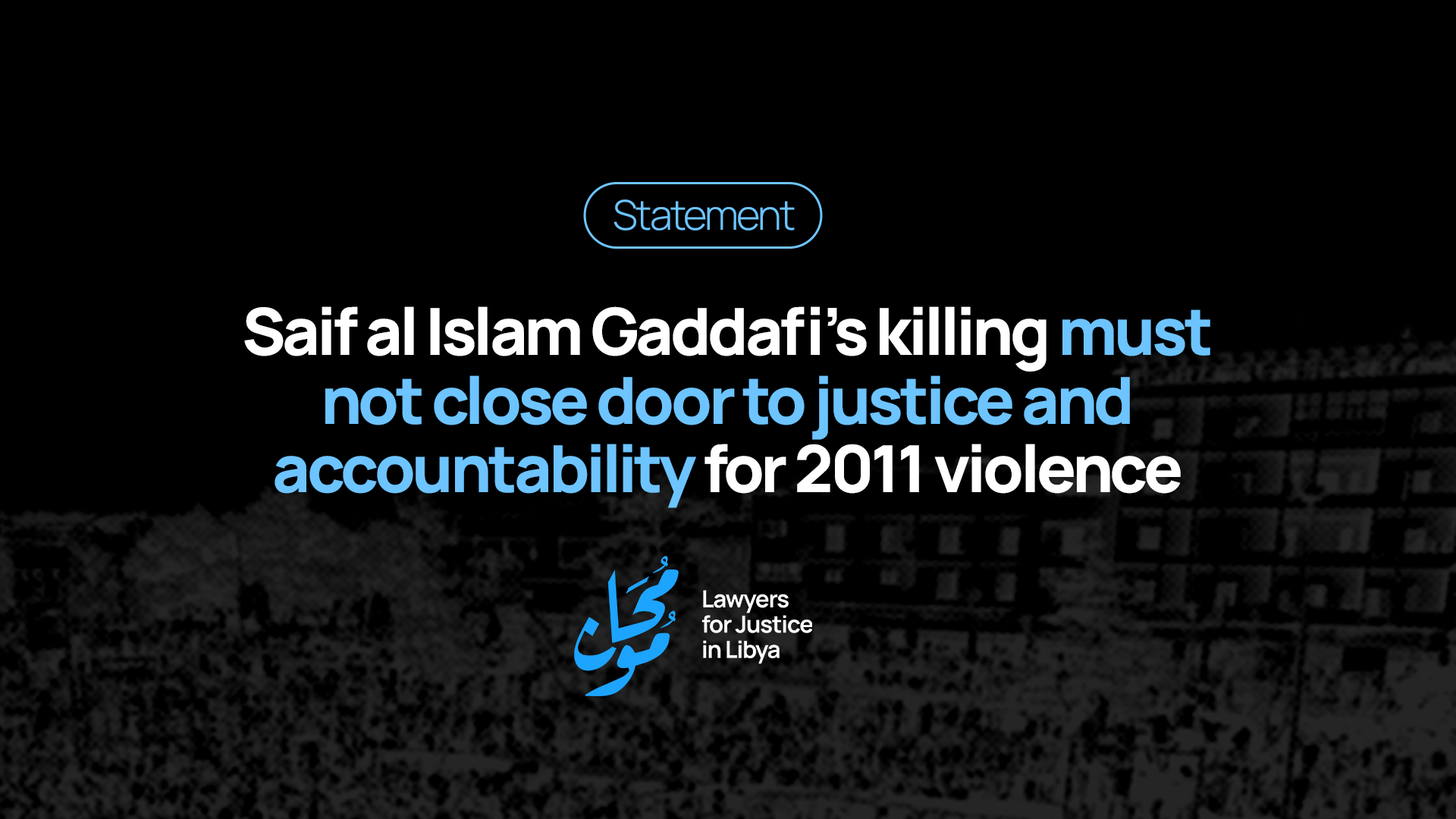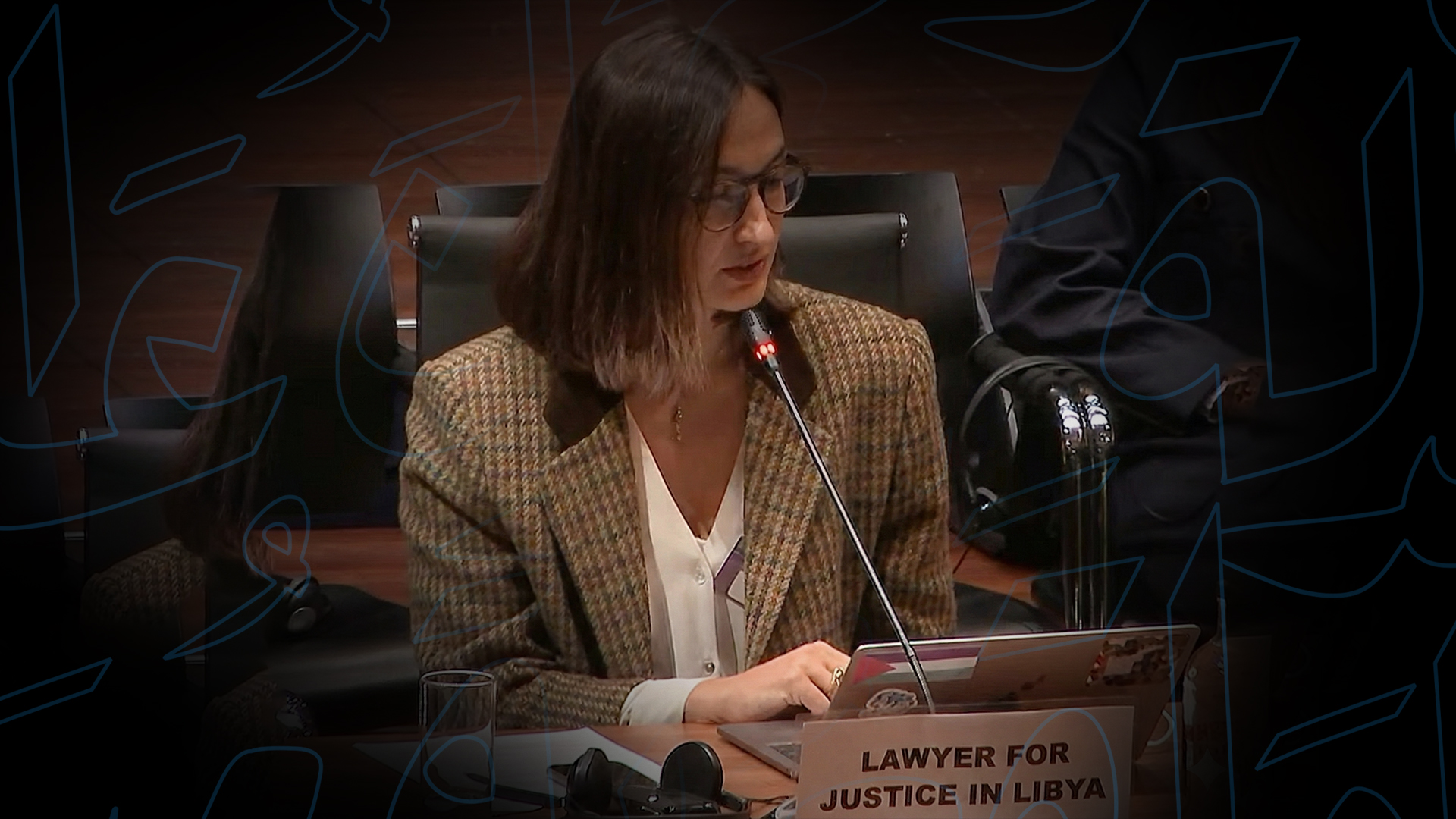Five pillars for the International Criminal Court’s strategy in Libya
On 28 April 2022, the Prosecutor of the International Criminal Court (ICC or the Court), Karim Khan (the Prosecutor), will present his Office’s 23rd report on Libya to the United Nations Security Council (the UNSC).
The upcoming briefing to the UNSC represents a vital opportunity for the Prosecutor to reiterate his previous commitment to making Libya a priority for his Office. Fulfilling the promise of a clear roadmap for the work of the Office of the Prosecutor (OTP) would be a welcome first step towards making Libya a priority in practice.
Within the limits of confidentiality of ICC investigations, the roadmap should include clear objectives and benchmarks. This will help counter the impression that Libya is treated as an inactive situation, given the limited progress made by the Court in the last decade. For the roadmap to be effective in enabling the Court to play a more impactful and visible role in Libya, Lawyers for Justice in Libya (LFJL) sets out five pillars to which the roadmap should adhere:
Addressing the lack of progress
In the words of the Prosecutor, “cogent and coherent allegations continue to arise” since the ICC began investigating Rome Statute crimes in Libya in 2011. Violations and crimes committed in Libya have been thoroughly documented by civil society organisations like LFJL, as well as bodies such as the United Nations Panel of Experts and the Independent Fact-Finding Mission on Libya.
The scale of the evidence of crimes committed in Libya since 2011 is not reflected in the progress made by the Court so far. No public arrest warrants have been issued since 2018. Two suspects reportedly died in 2021, effectively leaving just one outstanding public arrest warrant.
The Prosecutor’s 23rd report presents an important opportunity to explain all obstacles encountered so far in Libya, beyond budget and cooperation concerns usually cited, and make clear plans to address these. For more tangible progress, the Prosecutor’s roadmap should include a Libya-tailored investigative strategy led by experts, investigators and analysts with required language skills and local knowledge. Systematic cooperation with relevant civil society organisations, including from Libya, is also necessary to increase the OTP’s familiarity with the fast-changing context.
Improving outreach and communication
A recent LFJL survey of 389 Libyans across the country found that 90% of respondents were unfamiliar with the ICC’s work. This is reflected by other research that shows the ICC’s innovative framework on victim participation has remained virtually dormant in Libya.
There is a clear and urgent need for the Court to improve its outreach and communication in Libya, and the OTP has an essential role to play in this. An effective outreach strategy should be tailored to the context and ensure all developments by the OTP are communicated in Arabic consistently and in a timely manner.
To facilitate structured engagements with Libyan civil society and affected communities, the OTP should establish a Libya field office or a Libya-focused ICC liaison in Tunisia, according to the security situation in Libya. Such measures will both support the realisation of victims’ rights and make investigations more effective.
Tackling crimes against migrants and refugees
In his previous briefing, the Prosecutor highlighted information on crimes against migrants and refugees that continue to be widely committed across Libya – this is supported by recent LFJL research. He also announced a partnership between the OTP and a team of European states to tackle these crimes. Notwithstanding this welcome collaboration, the roadmap must clearly include the opening of the OTP's own investigation into crimes committed against migrants and refugees in Libya.
LFJL believes that the Court is best placed to capture fully the nature and gravity of the most serious crimes through the Rome Statute, and to prosecute those most responsible through open-ended and in-depth investigations, which may not be possible for domestic authorities. Domestic investigations and prosecutions by European states should not replace, but rather complement, an ICC investigation.
Increasing funding and cooperation
Over the past ten years, lack of state cooperation and budget constraints have contributed to the Court’s inability to fulfil its mandate in Libya. In his previous briefing, the Prosecutor clearly requested stronger commitment by the UNSC and individual states to support the work of the Court in Libya, a call which LFJL supported in its statement to the UNSC on 24 January 2022.
In the upcoming briefing, the Prosecutor should reiterate this important request. Support should include increased funding to the Court by member states as well as funding by the UN under article 115 (b) of the Rome Statute in relation to situations referred by the UNSC, such as Libya. Increase support should also mean improved cooperation in arresting wanted suspects, for example, in the case of Saif Al-Islam Gaddafi.
Protecting and promoting Libyan civil society
The state of Libyan civil society should be a primary concern for the Court and the UNSC alike. Despite their instrumental role in advancing efforts for accountability by documenting and preserving evidence of crimes, and liaising with victims and witnesses, civil society organisations in Libya are facing a systematic crackdown. This was highlighted by a recent report of the Independent Fact-Finding Mission on Libya which documented the impact of restrictive laws and regulations, as well as experiences of harassment, arrests, and abductions.
The Prosecutor should use the upcoming briefing to call on the UNSC and its member states to promote and protect the work of civil society in Libya by, for example, calling on Libyan authorities to respect civil and political rights, supporting independent civil society organisations, and ensuring adequate protection mechanisms. In parallel, the roadmap should include tailored measures for the protection of civil society organisations and their members when they engage with the OTP. Without a vibrant civil society that can work unhindered within Libya, it will be increasingly difficult for the OTP to gather evidence in Libya, and for the Court to successfully fulfil its mandate.





